
No. 11, 2024 | 9 August 2024
Go to:
From FRSA's Executive Director
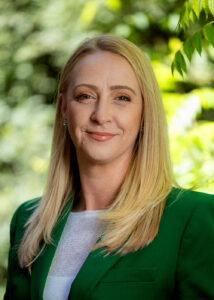
It’s great to see the Australian Government is inviting all people living in Australia to have their say on the future of Government services and supports – services such as Medicare and Centrelink (see below). As Minister for the Public Service, the Hon Katy Gallagher observed in her media release, the centralised, universal offering of government services does not distinguish between communities, places or peoples. Inviting people to share their views on how Government services can better engage with them and meet their needs can only be a good thing. Hopefully this reflects what we refer to in our network as a no ‘one size fits all’ approach. Given the experience of our FRSA members’ understanding of local context/s and how to shape service delivery to respond to local need – we believe there is much that the FRSA network can contribute to the design work underway.
Thanks to the many people in our network who also work tirelessly to end homelessness/make housing more affordable. In Homelessness Week we are reminded that housing is vital to stability and can create a pathway out of poverty and vulnerability – I encourage you to check out the resources and stories below.
It was also great to see former FRSA Board member, Judge Matthew Myers talking about his involvement with the Federal Circuit and Family Court of Australia and the Chief Justice, the Hon William Alstergren in making the FCFCOA more accessible and culturally safe for First Nations People. The intention is to help Indigenous families utilise the FCFCOA to settle disputes, before child protection becomes involved.
We too have our champions in the FRSA network working to make their services accessible and culturally safe for First Nations people. I encourage you to sign up for FRSA’s First Nations lunchtime webinar series that is starting up next week. We are delighted to have Sarah Decrea from Relationships Australia sharing her knowledge and wisdom with us, the network and other interested people as she delivers the first webinar on ‘Aboriginal & Torres Strait Islander Leadership is best practice in Child Protection’ on Wednesday next week. Don’t miss out!
Kind regards,
Jackie Brady
FRSA Executive Director

Register for the first FRSA First Nations lunchtime webinar!
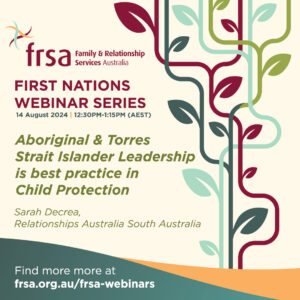 Register today for the first webinar in our First Nations focus on Family and Relationship services series, Aboriginal & Torres Strait Islander Leadership is best practice in Child Protection presented by Sarah Decrea from Relationships Australia South Australia on Wednesday, 14 August 2024 at 12:30PM-1:15PM (AEST)
Register today for the first webinar in our First Nations focus on Family and Relationship services series, Aboriginal & Torres Strait Islander Leadership is best practice in Child Protection presented by Sarah Decrea from Relationships Australia South Australia on Wednesday, 14 August 2024 at 12:30PM-1:15PM (AEST)
This presentation will focus on the transformative power of Aboriginal leadership in child protection reform. By embracing Indigenous expertise in using Restorative Practice to embed the practice of “high challenge high support” in both our work with families and between each other as sector professionals, we are seeing an innovative way forward that offers hope for sustained change.
View the full webinar schedule below:
| Date and Time | Webinar | Presenter |
|---|---|---|
| Wednesday, 14 August 2024
12:30PM-1:15PM AEST |
Aboriginal & Torres Strait Islander Leadership is best practice in Child Protection | Sarah Decrea, Relationships Australia South Australia |
| Thursday, 19 September 2024
12:30PM-1:15PM AEST |
Cultural Supervision – Safe yarning | Tara Farmer & Dwayne Hayden, Centrecare |
| Wednesday, 16 October 2024
12:30PM-1:15PM AEDT |
Message Stick Action Research Project | Jack Archibald & Lachlan Skinner, Interrelate |
| Wednesday, 30 October 2024
12:30PM-1:15PM AEDT |
Family-Led Decision Making driving child protection reform in South Australia | Megan Waters, Relationships Australia South Australia |
| Wednesday, 13 November 2024
12:30PM-1:15PM AEDT |
Aboriginal Community Education Officer Engagement | Lorelle Bennett & Jayde Milburn, Anglicare SA |
| Wednesday, 27 November 2024
12:30PM-1:15PM AEDT |
Developing Cultural Competence and Cultural Safety in Katherine, NT | Eugenie Collyer, The Smith Family |
Strategic Leadership Forum 2024
Registrations for the FRSA Strategic Leadership Forum 2024 are now open!
The dates are set for 10-11 September 2024 in Canberra. Click the button below to access the registration website. This is an FRSA Members only event.
We are working to build a program that provides CEOs and Senior Managers with the most relevant and most contemporary news and information of importance to the Family and Relationship Services sector.
Believe it or not – we are already in ‘pre-election’ mode – with the earliest date an election can be held (half-Senate and House of Representatives) being 3 August 2024 and the latest being 17 May 2025. So – it is important for the sector to be on the front foot with our political leaders and the Government agencies in delivering vital information about the ongoing value and importance of the Family and Relationship Services Sector.
To assist you in making your arrangements to attend whilst we finalise the program:
Day 1: Tuesday, 10 September 2024
Location: National Portrait Gallery, Parkes Way, Canberra
Start time: 10am
End time: 5pm
Networking event – 5.30-6:30pm (venue – TBA)
Day 2: Wednesday, 11 September 2024
Parliamentary Briefing Day – small group visits with Parliamentarians
Location: Australian Parliament House
Start time: 9am
End time: 2pm (Dependent on when your final meeting is scheduled)
Access to the event details including the event program, speaker information and accommodation will be available on the FRSA Members Only Event page.
Please contact events@frsa.org.au for the password to the FRSA Member’s Only Event page.
Meet the FRS Sector!
In this week’s video we spoke to Chez Leggatt-Cook, Research & Knowledge Translation Manage at UnitingCare in Queensland.
Multicultural Framework Review – report released
The Government has released the Multicultural Framework Review report. The review was the first major examination of the state of Australian multiculturalism in a generation.
This independent report assesses the health of our multicultural society, and makes recommendations to strengthen it for generations to come. More than half of Australians are born overseas or have at least one parent who was.
The 10 high priority recommendations in the report include:
- Australian Government to affirm commitment to multicultural Australia.
- Australia to formally observe the UN International Day for the Elimination of Racial Discrimination on 21 March.
- Develop a national plan to celebrate Australia’s cultural diversity, to synchronise existing federal, state, territory and local government initiatives such as Harmony Week to acknowledge and celebrate Australia’s cultural diversity.
- Establish a Multicultural Affairs Commission and Commissioner, and standalone Department of Multicultural Affairs, Immigration and Citizenship, with a dedicated minister.
- The Department of Home Affairs, through government and non-government consultation to action an immediate review of the Australian citizenship test procedures, including considering providing the test in languages other than English and in alternative and more accessible formats.
- Leverage Australia’s diversity of languages to support our economic prosperity through a revitalised language policy led by the Australian Government.
- Ensure the sustainability and quality of language services (interpreting and translating).
- Establish a fully funded TIS National capacity within the existing business unit.
- Boost National Accreditation Authority for Translators and Interpreters (NAATI) funding.
- Improve efficiency and effectiveness of multicultural grants and funding programs, with consultation and co-design of guidelines and common standards across the Australian Government, state and territory and local governments and community sector.
The Multicultural Framework review report is available here.
New AIFS Foundations for Collecting Evidence course
The Australian Institute of Family Studies (AIFS) is conducting an expression of interest for their online pilot course, ‘Foundations for Collecting Evidence’ that is designed to prepare sector professionals for collecting evidence about program implementation and outcomes. Participants will learn how to align programs with research evidence, develop a theory of change, and use pragmatic approaches to collecting useful evidence.
The course will be conducted online over 6 months (November 2024 to April 2025) and will involve:
- A 1-hour orientation session (early November): Covers introductions, program format, group expectations and Q&A.
- Background development (early to mid-November): Collation of existing program documentation in preparation for the workshops (program logic, descriptions etc.)
- 3 x half-day group workshops (online) (late November 2024 to early March 2025): Skills-focused workshops on:
- Identifying and summarising community needs and program evidence
- Developing program logic and theory of change
- Identifying data needs and sources
- Tailored support and out of session work (conducted over a 6-week period between each of the three workshops): Over 2-3 check-in meetings, a mentor from AIFS will work one-to-one with each participant to progress goals
People with limited knowledge and/or emerging skills about how to collect evidence and undertake evaluation activities will benefit from this course.
Click here to submit your Expression of Interest.
If you are interested in participating in ‘Foundations for Collecting Evidence’, please submit an Expression of Interest by 15 August 2024.
Successful applicants will be notified in September.
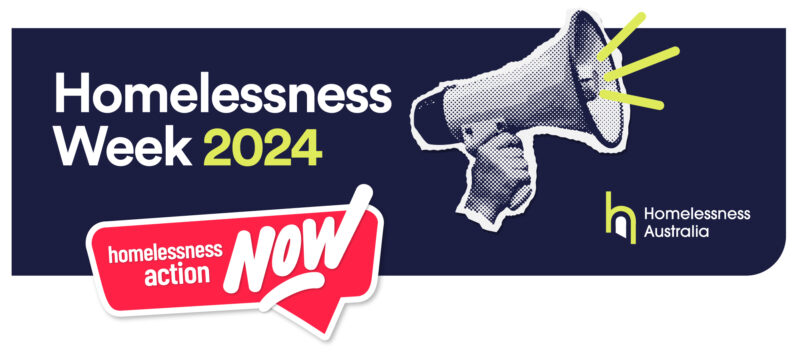
The Unfair Divide - Disadvantage faced by young people who are homeless report
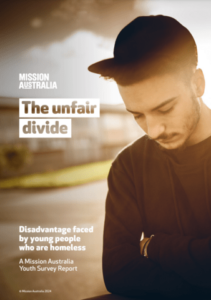 Mission Australia’s The Unfair Divide youth homelessness report has revealed that nearly one in 10 young people aged 15 to 19 who responded to Mission Australia’s Youth Survey 2023 endured the challenges of homelessness in the previous 12 months. These young people were homeless either with or without their families, and recently spent time without a fixed address, living in a refuge or transitional accommodation, or spent time away from home because they felt they couldn’t return.
Mission Australia’s The Unfair Divide youth homelessness report has revealed that nearly one in 10 young people aged 15 to 19 who responded to Mission Australia’s Youth Survey 2023 endured the challenges of homelessness in the previous 12 months. These young people were homeless either with or without their families, and recently spent time without a fixed address, living in a refuge or transitional accommodation, or spent time away from home because they felt they couldn’t return.
The new report shows that young people who had recently been homeless faced greater challenges compared with young people with stable homes. They were more likely than their peers who hadn’t experienced homelessness to suffer from a mental health condition, experience loneliness, struggle to fit in socially, face financial hardship and have strained or poor family relationships. Read the full report.
2024 Child homelessness snapshot
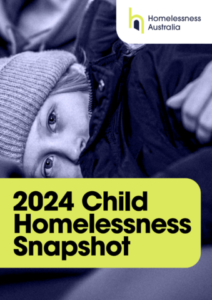 Homelessness Australia has released a new report which revealed more than 76,000 children under the age of 18 sought help from homelessness support services across the nation annually.
Homelessness Australia has released a new report which revealed more than 76,000 children under the age of 18 sought help from homelessness support services across the nation annually.
The report, 2024 Child Homelessness Snapshot, showed that almost 16,000 of these children were alone—unaccompanied by a parent or caregiver—and many were fleeing domestic violence, abuse or neglect at home. And more than 25,000 children remained homeless even after seeking help from specialist support agencies in 2022-23, a nationwide 3.2 per cent increase over the previous year.
Other findings include:
- A further 19,833 children were turned away from support services without being provided any assistance at all, a result of the severe lack of resources and overwhelming demand faced by the sector.
- NSW had the highest number of unaccompanied children seeking help from specialist services (7,152), followed by Victoria (3,271) and South Australia (2,306).
- First Nations children are overrepresented among children experiencing homelessness, making up 32 per cent of homeless children nationally, despite comprising only 6.8 per cent of the population under 18.
Homelessness statistics
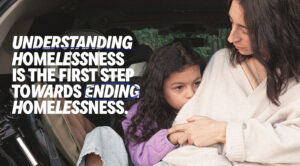 One of the first steps towards ending homelessness is increasing awareness about the homelessness crisis in Australia and who is affected. The Salvation Army has put together an information page with Homelessness Statistics including:
One of the first steps towards ending homelessness is increasing awareness about the homelessness crisis in Australia and who is affected. The Salvation Army has put together an information page with Homelessness Statistics including:
- What is Australia’s homeless population?
- Homelessness statistics in your state
- Homelessness facts: What does it mean to be ‘homeless’?
- What causes homelessness?
- How to help us end homelessness — for good
They also include details of housing and financial stress seen in their own research, where more than 1000 people, almost all females noted their concern about the cost of living. Specifically, 77 per cent of females under the age of 40 said they are ‘very concerned’ — this is the highest among all cohorts and aligns with the facts that females aged 25-34 are the largest group to seek support from homelessness services. Click here to visit the page and find out more.

Appointments to the Federal Circuit and Family Court of Australia
On 2 August the Attorney-General, The Hon Mark Dreyfus KC MP, announced three new appointments to the Federal Circuit and Family Court of Australia.
Mr Mark Anderson has been appointed to the Parramatta Registry and Dr Juliet Behrens and Judge Elizabeth Boyle have been appointed to the Sydney Registry of the Federal Circuit and Family Court of Australia (Division 1). They will commence on 5 August 2024.
National Agreement on Closing the Gap – latest annual data
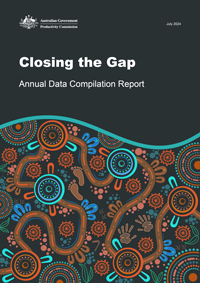 The Productivity Commission released the fourth Annual Data Compilation Report to inform reporting on progress under the National Agreement on Closing the Gap on 31 July 2024.
The Productivity Commission released the fourth Annual Data Compilation Report to inform reporting on progress under the National Agreement on Closing the Gap on 31 July 2024.
The Annual Data Compilation Report (ADCR) shows that five of 19 targets are on track to be met. The report includes new data for nine targets since last year. Improvements in two targets means they are now on track: healthy birthweights and sea country subject to Aboriginal and Torres Strait Islander people’s rights. However, an increase in the rate of young people in detention means that this target is no longer on track to be met. A further five targets show improvement but are not on track to be met, while progress towards four targets is worsening.
New data shows that the life expectancy of Aboriginal and Torres Strait Islander men is 71.9 years and is 75.6 years for women, but the gap between Aboriginal and Torres Strait Islander people and non-Indigenous people is not on track to close by 2031 (the target year).
The full report is available here.
Australians Invited to have their say on Government Services
The Australian Government is inviting people to have their say on the future of government services through a new online survey.
Responses will inform a Long-term Insights Briefing on The Future of government services: Aligning work with Australian communities.
Most government services and support – for example Medicare and Centrelink – are centrally designed and provide a universal offering to all citizens and communities. While this approach works well for many Australians, it does not distinguish between communities or places and there are a number of Australian communities, particularly diverse, disadvantaged and remote communities, where government services do not always reflect an effective or empowering approach.
Minister for the Public Service, Senator the Hon Katy Gallagher said the Long-term Insights Briefing would explore how government services could be designed and delivered differently in the future.
The survey is open to anyone living in Australia and will close on Sunday, 1 September 2024.
First Nations Playgroup Pilot
Minister for Social Services, the hon Amanda Rishworth MP has announced a new First Nations Playgroup Pilot.
More than $2.1 million has been committed to provide accessible and affordable spaces, resources and opportunities for First Nations children to play together and for parents and carers to seek social and parenting support.
Thirteen Aboriginal Community-Controlled Organisations across the country have been approved to share in the funding to date, which will increase the opportunities for First Nations children and families to attend a culturally safe service in their community.
The Government is working with SNAICC – National Voice for our Children to support the First Nations Playgroups Pilot program.

Odyssey House Victoria named finalist in the HESTA Awards
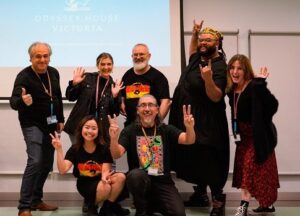 Congratulations to Odyssey House Victoria who were named a finalist in the national 2024 HESTA Excellence Awards for their Building Resilience via Advocacy, Counselling & Education (BRACE) program.
Congratulations to Odyssey House Victoria who were named a finalist in the national 2024 HESTA Excellence Awards for their Building Resilience via Advocacy, Counselling & Education (BRACE) program.
They are a finalist in the Community Services – Team Excellence category. This award recognises teams that have developed and/or improved a product, service, process or system to enhance the health and wellbeing of individuals, families and/or communities.
BRACE is recognised for embedding Youth alcohol and other drugs (AOD) and Mental Health Clinicians in high needs secondary schools in northwest metropolitan Melbourne, supporting 1,500 young people with tailored counselling, outreach, and education to mitigate substance misuse and its consequences. BRACE has successfully improved students’ understanding of AOD-related issues and reduced risky behaviours.
Winners of the 2024 HESTA Excellence Awards will be announced on 29 August in Melbourne. Good luck!
ac.care's We Care Cally Camp Out raises $185,000 to support South Australians
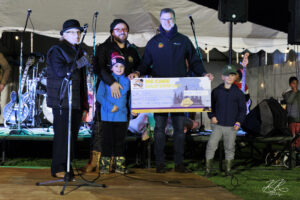 On 21 June, the 2024 We Care Cally Camp Out event raised $185,000 for South Australian charities to support people experiencing or at risk of homelessness.
On 21 June, the 2024 We Care Cally Camp Out event raised $185,000 for South Australian charities to support people experiencing or at risk of homelessness.
Major donations announced on the night included $100,000 to the ac.care Murraylands Homelessness Service, $65,000 to Adelaide-based women’s homelessness service Catherine House and $10,000 each to the Vinnies Fred’s Van meal service and the Salvation Army Murraylands Corp.
The inaugural event was presented by major Monarto South family business Australian Portable Camps. ac.care Chief Executive Officer, Shane Maddocks welcomed the major donation at a time when the Murraylands Homelessness Service based at ac.care’s Bridge Street office in Murray Bridge continues to face a dramatic rise in people seeking support.
“The rising cost of living and lack of affordable housing, along with growing issues around loneliness and isolation, is leading more people to seek support from our organisation to secure the stability they need now and build a more hopeful future,” Mr Maddocks said.
“We are overwhelmed with the generosity of the Callington and district community, Australian Portable Camps and many generous supporters locally and across Australia who made the inaugural We Care Cally Camp Out event such a huge success.
“The donation of $100,000 will truly make a difference in helping us achieve our mission of ensuring country South Australians have safe homes, enough money to live on and strong, positive relationships, especially in the Murraylands.” Read more.
Benevolent Society a finalist in the Third Sector Awards
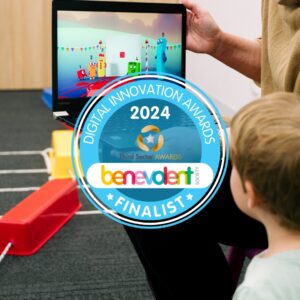 The Benevolent Society has been named a finalist in the Third Sector Awards for the Digital Innovation Award for their Digital Inclusion Program.
The Benevolent Society has been named a finalist in the Third Sector Awards for the Digital Innovation Award for their Digital Inclusion Program.
The program bridges the digital divide by providing families with a free laptop and 12 months of free internet access. This program ensures vulnerable families can connect with essential online services like government, financial, education, and health resources. By enhancing digital literacy, we’re empowering greater community participation.
Voting is now open until 16 August 2024 via the Third Sector Awards website. The winners will be announced at the awards ceremony on 12 September 2024 at the Intercontinental Double Bay.
Third Sector Awards is the largest and most prestigious Awards ceremony recognising excellence within the Not-for-Profit sector. Developed and hosted in partnership with the Centre for Social Impact (CSI), Third Sector Awards is back to provide the opportunity for organisations of all sizes to celebrate their much needed work and contributions to society.
$200,000 Homes for Homes grant for Canberra awarded to Marymead CatholicCare
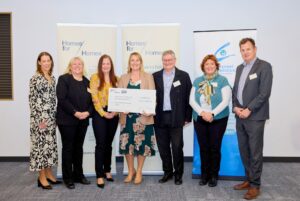 Marymead CatholicCare Canberra & Goulburn have received $200,000 from Homes for Homes and The Big Issue, which will go towards supporting their social and affordable housing projects.
Marymead CatholicCare Canberra & Goulburn have received $200,000 from Homes for Homes and The Big Issue, which will go towards supporting their social and affordable housing projects.
CEO Anne Kirwan, in accepting the grant late last month, referred to the current national housing crisis, saying it cannot be resolved by any one government or provider.
“Every night 122,000 people in Australia sleep homeless, while another 15 million Australians live in serious housing stress,” she said.
“Thanks to the support of partners like Homes for Homes we can be part of the solution and provide more social and affordable housing options in our community. Our vision is to create truly multi-purpose, adaptable housing that will cater to our current and future services and clients.”
The project will support a variety of essential areas, including:
- supported independent living.
- disability respite care.
- families escaping domestic violence.
- clients exiting out of home care.
- people experiencing homelessness.
UnitingSA age care residents art show
 Artworks created by UnitingSA’s aged care residents are part of the 2024 South Australia Living Artist (SALA) Festival.
Artworks created by UnitingSA’s aged care residents are part of the 2024 South Australia Living Artist (SALA) Festival.
The exhibition titled, The Wild and Wonderful World Around Us features artworks inspired by the residents’ lifetime of adventures in nature. Each piece is a heartfelt expression of the artists’ love of the natural world, capturing the joy and wonder they’ve experienced firsthand.
Following the exhibition launch last week at West Lakes, the pieces are now touring each of UnitingSA’s Aged Care sites. Exhibition dates below:
- 7-14 August – Westminster Village
- 14-21 August – Wesley House
- 21-28 August – Hawksbury Gardens
- 28 August – 4 September – Seaton
They will be launching an online gallery for those we can’t be there in person.

2024 National Child Sexual Abuse and Harmful Sexual Behaviours Conference
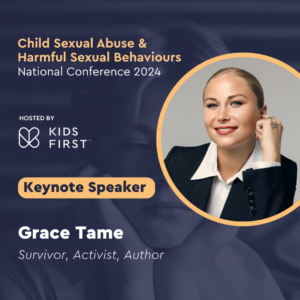 Join the 2024 National Child Sexual Abuse and Harmful Sexual Behaviours Conference hosted by Kids First Australia. Over two days, the conference will bring together researchers, practitioners, public servants and those with lived experience to share the nation’s latest approaches, policy developments, and emerging ideas in the field of child sexual abuse and harmful sexual behaviours.
Join the 2024 National Child Sexual Abuse and Harmful Sexual Behaviours Conference hosted by Kids First Australia. Over two days, the conference will bring together researchers, practitioners, public servants and those with lived experience to share the nation’s latest approaches, policy developments, and emerging ideas in the field of child sexual abuse and harmful sexual behaviours.
When: Thursday, 31 October and Friday, 1 November 2024
Where: Sofitel Melbourne on Collins
Kids First Australia has announced that Grace Tame will join the conference for a plenary session on day 2 of #CSACON2024!
Grace is a survivor of child sexual abuse, author, columnist, campaigner and advocate for fellow survivors.
Plus, hear from experts in the field including Prof. Daryl Higgins (ACU), Carol Ronkin (Bravehearts), Jackie Bateman (Kids First) and more. Click here to learn more and register.
Wear It Purple Day
 Wear It Purple Day is coming up on 30 August 2024. The day is an annual LGBTIQA+ awareness day especially for young people. Supporters are encouraged to wear purple to celebrate diversity and young people from the LGBTIQA+ community. This year’s theme is ‘Your Passion, Your Pride’.
Wear It Purple Day is coming up on 30 August 2024. The day is an annual LGBTIQA+ awareness day especially for young people. Supporters are encouraged to wear purple to celebrate diversity and young people from the LGBTIQA+ community. This year’s theme is ‘Your Passion, Your Pride’.
Tor Adams, from Wear it Purple’s Youth Action Council said, “For young people who identify as LGBTQIA+, the theme “Your Passion, Your Pride” is an empowering and affirming rally cry to express their true selves to the world and chase their dreams. It’s time for rainbow youth to see and feel a positive surge in successful, happy role models from the LGBTQIA+ community who are living proof it’s possible.”
Register your Wear It Purple event or download resources from their website.
Effective Online Group Leadership Workshop
SUNSHINE CIRCLES – Albury
SUNSHINE CIRCLES – Shepparton
HEY LITTLE WARRIOR – Sale
NSW
Family Dispute Resolution Practitioner – FDRP – Penrith | Relationships Australia NSW
Senior Family Dispute Resolution Practitioner – FDRP | Relationships Australia NSW
WA
Coordinator Family Law Services | Anglicare WA
NT
Settlement Support Worker (RAMSS) | Anglicare NT
Financial Counsellor/Capability Worker | Anglicare NT
If you have any events you’d like listed on the FRSA Events and Training Calendar or job vacancies you’d like listed on the FRSA Jobs Board, email Communications Officer, Vanessa Lam at communications@frsa.org.au. Please note that posting onto the FRSA website is reserved for FRSA Members only.

The real face of men’s health | Movember Foundation
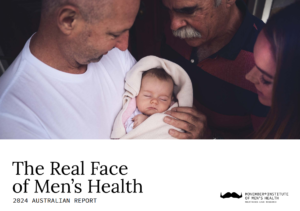 This report outlines the state of men’s health across Australia and makes clear the benefits that would ripple through families, communities and societies if we improved men’s health – including billions in savings by preventing avoidable conditions in men and supporting them to live healthier, longer lives.
This report outlines the state of men’s health across Australia and makes clear the benefits that would ripple through families, communities and societies if we improved men’s health – including billions in savings by preventing avoidable conditions in men and supporting them to live healthier, longer lives.
Understanding cultural safety for Aboriginal children and young people | Commissioner for Children and Young People
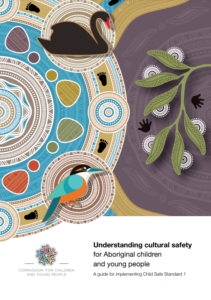 This cultural safety guidance offers practical steps to take organisations through the process of establishing culturally safe environments and demonstrate their compliance with the Child Safe Standards law.
This cultural safety guidance offers practical steps to take organisations through the process of establishing culturally safe environments and demonstrate their compliance with the Child Safe Standards law.
Receipt of parenting, disability, unemployment, and other income support payments in persons aged 16 to 33 years – the associations with child maltreatment | Child Abuse & Neglect
The objective of this study was to examine the association between child maltreatment and receipt of income support payments and the budgetary impact for persons 16 to 33 years. It was concluded investment in effective preventive and protective strategies for children in child protection could address this core social determinant of health, while providing budget savings.
Specialist homelessness services clients experiencing family and domestic violence: interactions with out-of-home care and income support | Australian Institute of Health and Welfare
This report, by AIHW, examines the use of income support and out-of-home care among specialist homelessness services clients experiencing family and domestic violence.
Towards a stronger safety net to prevent abuse of children | Independent Children’s Monitor (NZ)
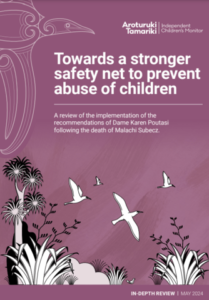 Malachi Subecz was not in State care but reports of concern had been made about him. Six government agencies completed reviews of their own processes, and chief executives also commissioned a system-wide review from Dame Karen Poutasi (the Poutasi review). This report looks at whether the recommendations made by the Poutasi review have been actioned and whether tamariki (children) are safer as a result. It found that tamariki are no safer now than when Malachi died.
Malachi Subecz was not in State care but reports of concern had been made about him. Six government agencies completed reviews of their own processes, and chief executives also commissioned a system-wide review from Dame Karen Poutasi (the Poutasi review). This report looks at whether the recommendations made by the Poutasi review have been actioned and whether tamariki (children) are safer as a result. It found that tamariki are no safer now than when Malachi died.
Mental health in aged care | Australian Institute of Health and Welfare
Mental health conditions are common in late life, and older adults with a mental health condition are more likely to experience reduced quality of life. This report provides a snapshot of what is known about the mental health needs of individuals at the time of assessment for aged care services.
Improving cultural safety: Recommendations for child protection practitioners | Child Family Community Australia
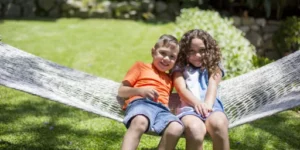 Developed in partnership with authors Kaitlyn McVicar (a proud Tagalaka woman) and Stephanie White (non-Indigenous Australian woman) this article aims to provide guidance using 3 cultural safety principles. These principles suggest how practitioners can adapt their practice to create a more culturally safe environment for First Nations peoples.
Developed in partnership with authors Kaitlyn McVicar (a proud Tagalaka woman) and Stephanie White (non-Indigenous Australian woman) this article aims to provide guidance using 3 cultural safety principles. These principles suggest how practitioners can adapt their practice to create a more culturally safe environment for First Nations peoples.
Fairly equal? Economic mobility in Australia | Productivity Commission
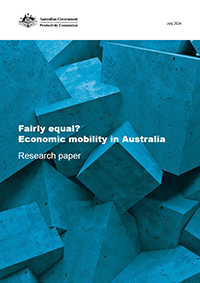 This research paper explores economic mobility – how inequality changes over time – by looking at whose incomes are increasing, and whose are not. It examines income changes over a person’s lifetime, and how incomes change from one generation to the next. It also explores the characteristics of people experiencing poverty.
This research paper explores economic mobility – how inequality changes over time – by looking at whose incomes are increasing, and whose are not. It examines income changes over a person’s lifetime, and how incomes change from one generation to the next. It also explores the characteristics of people experiencing poverty.
Culturally Responsive Approach to Assessing Mental Health and Suicide Prevention | Gayaa Dhuwi (Proud Spirit) Australia
Integrating Aboriginal and Torres Strait Islander values-based social and emotional wellbeing measures within clinical assessments is crucial for developing and evaluating effective, culturally safe mental health and suicide prevention services for Aboriginal and Torres Strait Islander communities. This paper presents values-based measures recommended to be led by Aboriginal and Torres Strait Islander peoples and implemented throughout the entire Australian mental health system.
Why are children spending more time indoors? | Australian Institute of Family Studies
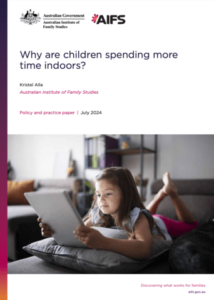 Young children are spending an increased amount of their time indoors. This article summarises international and Australian research evidence on why this is and considers what this means for their well-being and for the people who support families.
Young children are spending an increased amount of their time indoors. This article summarises international and Australian research evidence on why this is and considers what this means for their well-being and for the people who support families.
Podcast series: Supporting children when working with separating parents | Emerging Minds
Each year, many Australian children experience the separation or divorce of their parents or primary caregivers. Many parents navigate separation in ways that take care of children’s mental health and wellbeing, without assistance from family dispute resolution services or specialist counselling services. Emerging Minds have released a three-part podcast series on supporting children’s mental health and wellbeing when working with separating parents.
Aboriginal and Torres Strait Islander Health Performance Framework: summary report | Australian Institute of Health and Welfare
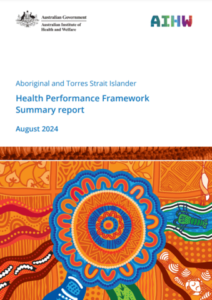 This report summarises the latest information on health outcomes, health system performance and the broader determinants of health for Aboriginal and Torres Strait Islander people, drawing from the Health Performance Framework measures.
This report summarises the latest information on health outcomes, health system performance and the broader determinants of health for Aboriginal and Torres Strait Islander people, drawing from the Health Performance Framework measures.
Want to submit something to the FRSA eBulletin?
If you have an news item or event that you would like to be featured in a future eBulletin please submit your announcement via the form below or email communications@frsa.org.au with the subject “FRSA eBulletin submission”.
Please note FRSA members receive priority for items posted in the eBulletin. And to keep information current, relevant and useful, submissions will not be repeated from week to week.
Subscribe
Subscribe to receive future eBulletin editions directly to your inbox!








